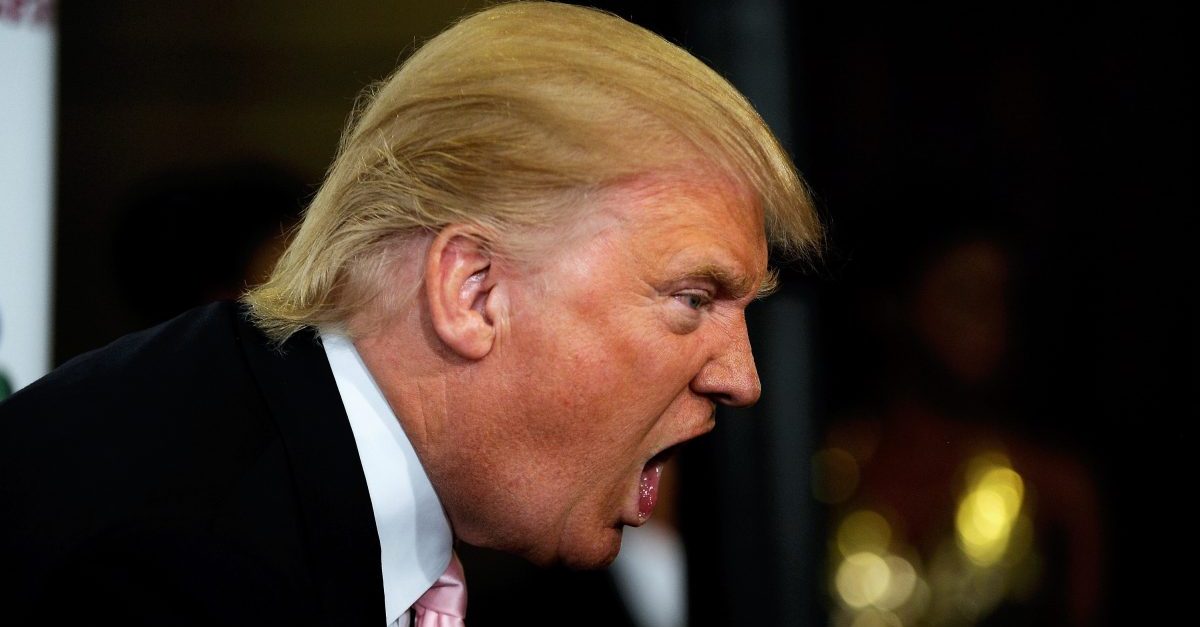
The lawsuit against Deutsche Bank to quash Congressional subpoenas is classic Donald Trump. If this lawsuit had a name, it would be, “It’s Not Me, It’s You.”
President Trump, his children, and his business organizations stand together as co-plaintiffs against Deutsche Bank and Capital One, suing in federal court in New York in an attempt to throw out congressional subpoenas. The subpoenas were issued by the House’s Financial Services and Intelligence Committees as part of the long-promised investigation into Trump business dealings; this is what impeachment-hopefuls have been waiting for.
The problem, for the Trumps, is that the subpoenas in question weren’t flung at them, but rather, at third-party financial institutions. As a result, many of the usual subpoena-quashing arguments (we don’t have the documents, it’s burdensome to gather those documents, we don’t know what you’re talking about, etc.) can only be made by the subject banks – and not by POTUS or his kids.
The procedural result is that to stop Deutsche Bank and Capital One from supplying Congress with the requested information, Trump et al. must sue the banks directly to force the issue. Trump’s argument against the congressional subpoenas amount to two lies and a truth – and taken together, they’re not particularly convincing.
In typical Trump fashion, the most pervasive argument in the Trump complaint is also the least persuasive: that Congress lacks the power to even issue these subpoenas, because the document requests are not connected to pending legislation. The complaint even cites the Constitution as proof that Congress has no enumerated power of investigation – only one of legislation.
All of that would make good sense if the subject of Congress’ investigation were literally anyone other than the president. Congress does not have power to simply start open-ended investigations at will. However, and as President Trump is keenly aware, Congress (and only Congress) has the power to impeach. And let’s face it, gathering information to that end appears to be the goal here.
Trump’s complaint declares that, “Congress is not ‘a law enforcement or trial agency,’” which sounds good – but is, in this context, simply not true. When it comes to impeachment, Congress is judge, jury, and executioner. It’s a debatable question whether a Trump impeachment would be wise or even successful – but Congress clearly has the authority to do it. So arguments about how these financial subpoenas are being issued for the “personal aggrandizement of the investigators” are kind of silly. They’re being issued with an eye toward taking down Trump, and Congress has the power (although, admittedly, probably not the votes) to do precisely that.
Almost as ridiculous is the argument that the subpoenas should be quashed, because members of Congress publicly promised to issue them. As the Trump narrative goes, the power to issue subpoenas can’t be legitimate, because Nancy Pelosi and Maxine Waters made fiery oaths to make the president’s life hell.
But even that wasn’t quite right.
Eye-rolling political theater aside, we’re back where we were earlier. In addition to its power to legislate, Congress has the power to impeach a president. Congress has the power to issue subpoenas in order to carry out its legislative or impeachment power. Legislating might be what Congress spends most of its time doing, but it’s equally authorized to impeach — and to take all steps necessary to exercise its impeachment power. That those wielding the power were brazen about their intent to use it does nothing to weaken or minimize their authority.
Trump’s complaint is peppered with whines over Congress’ political intent – but this would be a great time to point out that impeachment is (and was always meant to be) inherently a political remedy. Arguing that Congressional subpoenas are invalid because they are politically-motivated is a lot like arguing that court-issued ones are invalid because they are judicially-motivated.
The one potentially valid argument raised in the Trump complaint is the breadth of Congress’ document requests. According to the complaint, the subpoenas demand an exhaustive amount of documents related to many people and organizations over decades. Much of the information sought predates Trump’s presidency and even his campaign.
This argument might have some merit; after all, Congress’ power to impeach generally does not stretch into pre-election conduct – and may be more limited as it relates to documents regarding the Trump children and businesses as opposed to Trump himself. Overbreadth isn’t, however, a panacea for Congress’ entire discovery demand; it could be the basis for limiting the scope of the subpoenas –but likely not one for throwing them out altogether.
Litigating to narrow the scope of the subpoenas, however, would require a posture that Trump appears unwilling to take. Such an argument would necessitate Trump’s acquiescence to Congress’ general authority to subpoena Deutsche Bank and Capital One, as well as a willingness to distinguish Congress’ power with respect to a president, but not that president’s family members. For now, Trump is going with outrage over Congress’ out-of-bounds behavior, and we’ll have to see whether the federal court calls his bluff.
[Photo by David Becker/Getty Images]
This is an opinion piece. The views expressed in this article are those of just the author.